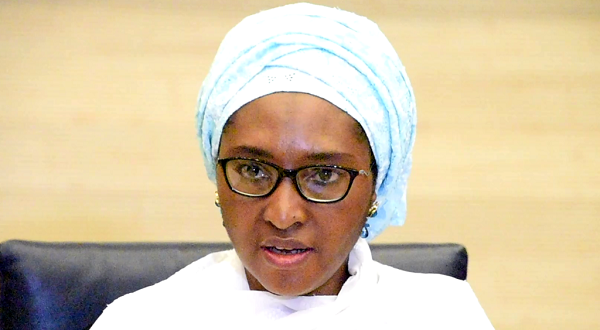Business
Inside the Finance Bill. Why the Nigerian govt is reviewing N50 Stamp Duty

In a gesture of appeasement following repeated public outcry against the recent stamp duty reform that imposed N50 charge on every electronic transaction above N1,000, the Nigerian government, through the Finance Bill, may have moved to revoke the decision.
Ripples Nigeria had reported how the National Assembly had received a financial bill from the executive, seeking a review of the policy from the N50 currently chargeable on payments above N1,000 to be charged instead on transactions above N10,000. However, the policy will not affect bank transfers between two accounts belonging to the same owner when it is approved.
The bill seeks to repeal a section of the Stamp Duty Act 2014, which maintained the threshold of collections chargeable with stamp duty at N4 and above.
The Central Bank of Nigeria had announced this September a new Merchant Service Charge regime that compelled businesses to henceforth charge duties on individual transactions in a step the apex bank claimed would “further deepen financial inclusion and enhance efficiency of the Nigerian payments system.” Until this directive, merchant charge settlement was the responsibility of businesses, not customers’.
In just a little over two months, the myriad adverse effects of the reform have been heavy on businesses and the consuming public. In an ever-vibrant consumerist culture like Nigeria’s with increasing awareness by customers as to which payment option offers the most affordable and friendliest settlement process, there is no disputing what harm consumer behaviour might do to trade in circumstances like this.
Read also: For the third time, IMF expresses concerns over Nigeria’s rising debts
Petrol stations are recording significant fall in the Point of Sale (POS) transaction volumes especially at the pump, lubricant sections and domestic gas points, three units of the petroleum marketing business responsible for most consumer-inclined transactions. Findings have it that cash transactions have dominated trade in this business in aftermath of massive migration of buyers from POS channels to cash settlement since the law took effect. By implication, petroleum marketers are more stressed these days by the need to evacuate cash from point of sales to banks, a development that clearly shows that government is fast losing the cashless policy and financial inclusion debate.
Interestingly, reports show that only big petroleum marketers with a wide retail network and long established presence in the game are able to withstand this strain in some way. Because of larger customer base, businesses in this category can still absorb the shock of losing customers discouraged by the N50 stamp duty charge. The impact of the CBN reform, according to a report, is heavier on young and small-scale petroleum marketing businesses, where owners, compelled by the necessity to make sales, have resorted to bearing the charges themselves at the expense of customers.
The case appears the same in other retail outlets: the supermarkets, the grocery stores, the pharmacies, the electronic superstores and a host of others. There is every likelihood that the traffic at Automated Teller Machines (ATM) and banking halls will have reached highest congestion levels since the cashless policy launched.
Join the conversation
Support Ripples Nigeria, hold up solutions journalism
Balanced, fearless journalism driven by data comes at huge financial costs.
As a media platform, we hold leadership accountable and will not trade the right to press freedom and free speech for a piece of cake.
If you like what we do, and are ready to uphold solutions journalism, kindly donate to the Ripples Nigeria cause.
Your support would help to ensure that citizens and institutions continue to have free access to credible and reliable information for societal development.
























